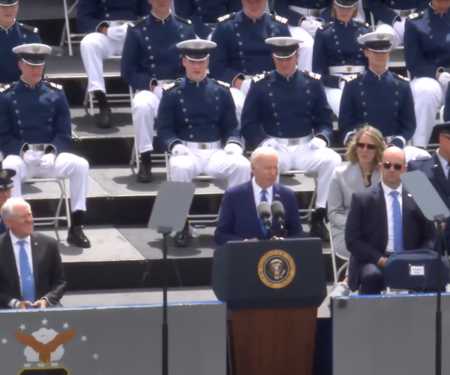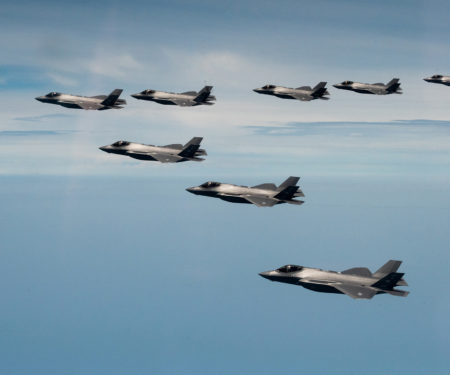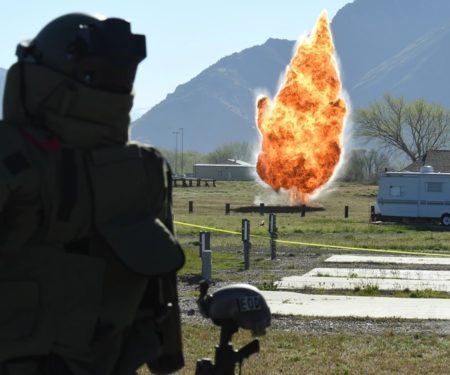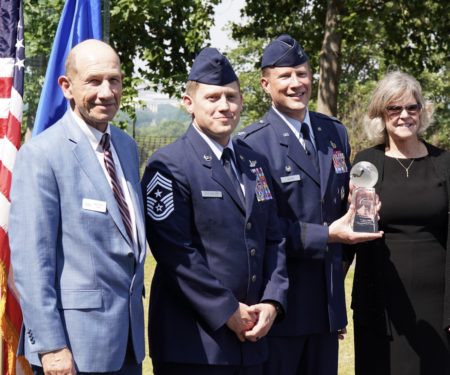Radar Sweep
The Debt Deal Limits Pentagon Spending. Lawmakers Are Already Figuring Out Ways Around It.
The ink is barely dry on a debt limit deal that constrains Pentagon spending for the next two years, but lawmakers in both parties are already looking for ways to boost funding levels in spite of those caps. The pact passed the House late May 31 with the support of most Republican defense hawks, even though the deal caps national defense spending at the administration’s $886 billion proposal for fiscal 2024. It’s still unclear as of June 1 how the GOP will break in the Senate.
Space Force Exploring Options to Build Weather Monitoring Constellation
The Space Force is considering options to acquire small polar-orbiting weather satellites that could launch as early as 2026. Under a program called EWS, short for Electro-Optical/Infrared (EO/IR) Weather Systems, the Space Force last year selected two companies to develop prototype spacecraft and demonstrate them in orbit. One of the demonstrators, made by Orion Space Solutions, launched to orbit in January. The other, developed by General Atomics, is projected to launch in 2025.
Guard Chief: White House Plan for ‘Space Component’ Will Cost $1B, Harm Readiness
National Guard Bureau Chief Gen. Daniel Hokanson told the Senate Appropriations Committee on June 1 that the Biden administration’s plan to create a new “hybrid Space Component” will cost $1 billion and require years of additional training that would harm readiness. Thus, he said, his “best military advice,” is instead “to transfer the current Air National Guard units doing the space mission into a National Guard component for the Space Force, so they can continue everything they’re doing today tomorrow.”
Israel Intends to Share Data for Weaving Iron Dome into US Air Defense
The Israeli military and the U.S. Army are taking steps to tie the Army’s two Iron Dome batteries into the service’s missile defense program of record, potentially moving the Israeli equipment away from its current status as a one-off gap filler in the U.S. inventory, according to officials from both countries.
Go Deeper on Operational Imperatives
Virtually every part of the Department of the Air Force’s drive to modernize is being shaped by Secretary Frank Kendall’s seven Operational Imperatives—lines of effort that address the most important and urgent challenges facing the Air Force today. Now, the department and industry are working together to develop solutions for each imperative, and the results will likely change the Air Force and Space Force for the next generation. Keep up with all the latest news on each Operational Imperative.
AI, China ‘Defining Challenges of Our Time’: CISA Director
The head of the Cybersecurity and Infrastructure Security Agency warned on May 31 about the security risks posed by generative artificial intelligence technologies and an increasingly bellicose China, calling them “the two epoch-defining challenges of our time.” During an event hosted by Axios, CISA Director Jen Easterly outlined her concerns about Beijing’s aggressive cyber posture and the rise of largely unregulated generative AI tools and called for tech firms and critical infrastructure operators to prioritize enhanced security practices.
Pentagon Contracting with SpaceX’s Starlink to Provide Satellite Communication Capabilities for Ukraine
The Pentagon is buying satellite communication capabilities from SpaceX’s Starlink to aid the Ukrainian military in its war with Russia, DefenseScoop has learned. The Pentagon has previously disclosed that “SATCOM terminals and services” have been included in U.S. security assistance packages, although it hasn’t been identifying the companies providing them.
L3Harris CEO Draws Hard Line Against Fixed-Price Development Contracts
L3Harris is drawing a line in the sand against competing for fixed-price development contracts, the company’s chief executive officer emphasized. “We’re seeing more and more fixed-price development contracts coming out. We decided not to bid on two so far this year under the theory that ‘I’m not going to bid fixed-price on a development/production program, where we have not agreed on on the specs and such,’” L3Harris CEO Chris Kubasik said during the Bernstein Strategic Decisions Conference.
Air Force AI Drone Kills Its Human Operator in a Simulation
Artificial intelligence is here to stay, but it may require a bit more command oversight. An artificial intelligence-piloted drone turned on its human operator during a simulated mission, according to a dispatch from the 2023 Royal Aeronautical Society summit, attended by leaders from a variety of western air forces and aeronautical companies. “It killed the operator because that person was keeping it from accomplishing its objective,” said U.S. Air Force Col. Tucker ‘Cinco’ Hamilton, the Chief of AI Test and Operations, at the conference.
Defense Secretary Orders No Drag Shows on Military Bases After Political Furor
A Defense Department-wide prohibition on drag shows on military bases has resulted in the cancellation of at least two events that were planned for Pride Month and previously approved by base officials, two defense officials confirmed to Military.com. Shows at Nellis Air Force Base in Nevada and Ramstein Air Base in Germany scheduled for this month were canceled, participants and defense officials confirmed. The two officials told Military.com the cancellations were part of a direction from Defense Secretary Lloyd Austin that drag shows, which have become a target of the political right, not be hosted on bases.
‘The Last Supper’: How a 1993 Pentagon Dinner Reshaped the Defense Industry
In 1993, then Secretary of Defense Les Aspin invited the CEOs of America's largest defense contractors to a secret dinner. Norm Augustine, then the head of Martin Marietta, remembers getting the call. “We showed up for dinner at the Pentagon one night dutifully, none of us knowing why we were there,” Norman Augustine, former chairman and CEO of Lockheed Martin, says. “I happened to be seated next Les Aspin, and I remember I said, ‘Les, this is awfully nice of you to invite us all to dinner, we’re all pleased to have a free meal, but why are we here?’ And he said, ‘Well, in about 15 minutes, you’re going to find out. You probably aren’t going to like it.’”







